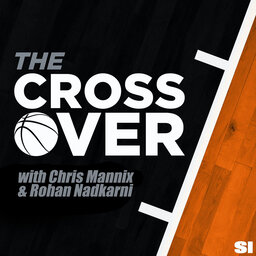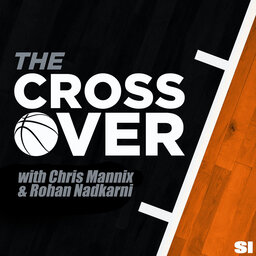Bad Boy for Life w/ Joe Dumars
On the Friday edition, Howard Beck welcomes Hall of Famer Joe Dumars. The former Pistons Bad Boy is now the NBA’s discipline czar, part of his new role as executive vice president and head of basketball operations. Dumars discusses his approach to the job, then reflects at length on his tenure as Pistons GM – his proudest moments, biggest regret and the time he almost landed Kobe Bryant
In 1 playlist(s)
The Crossover NBA Show
NBA scores, stats, standings and moves are fodder for hot takes on The Crossover with Chris Mannix &…Social links
Follow podcast
Recent clips

Gambling Controversies & Bucks/Celtics
39:37

East & West Contenders & Pretenders w/ Dan Devine
54:21

LeBron's Unbreakable Record & OKC's Playoff Questions
34:43
 The Crossover NBA Show
The Crossover NBA Show